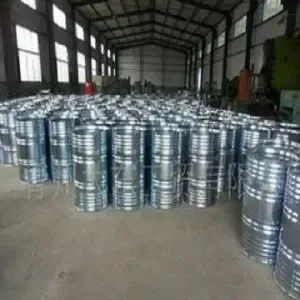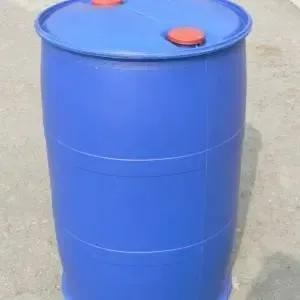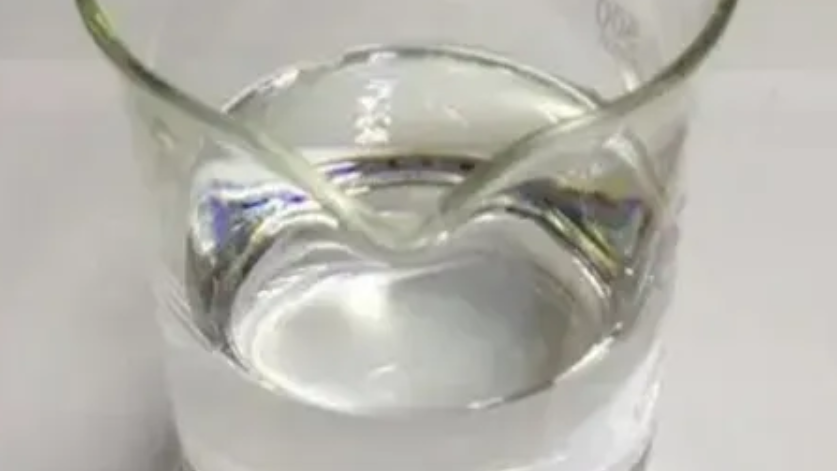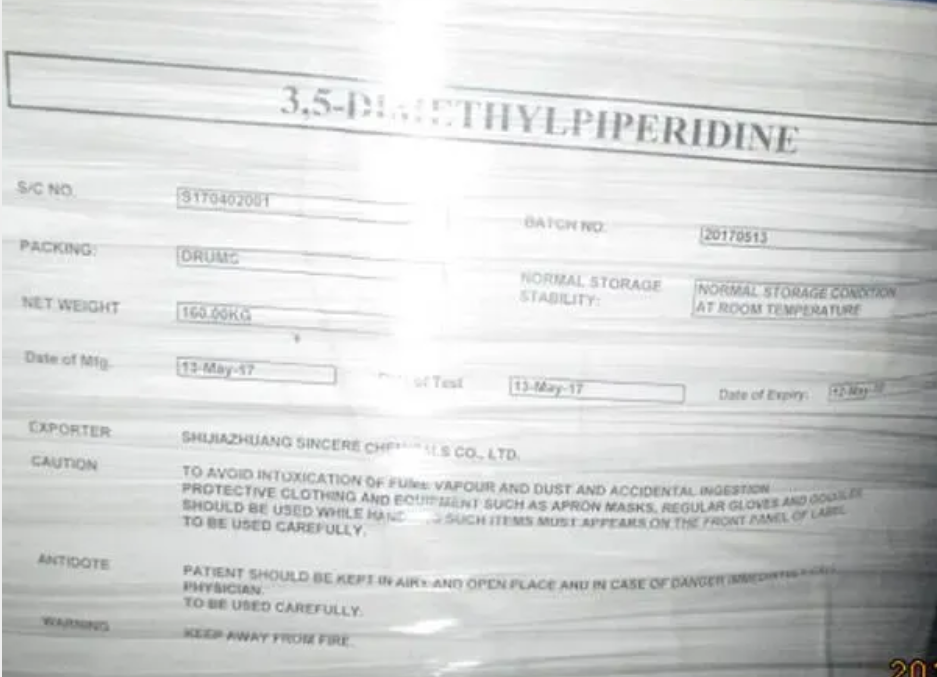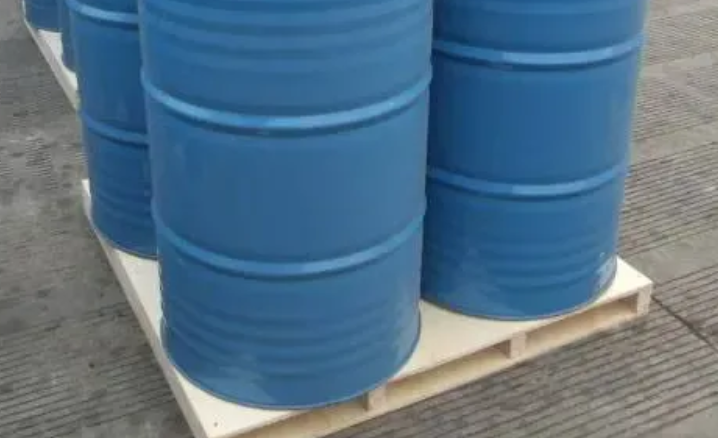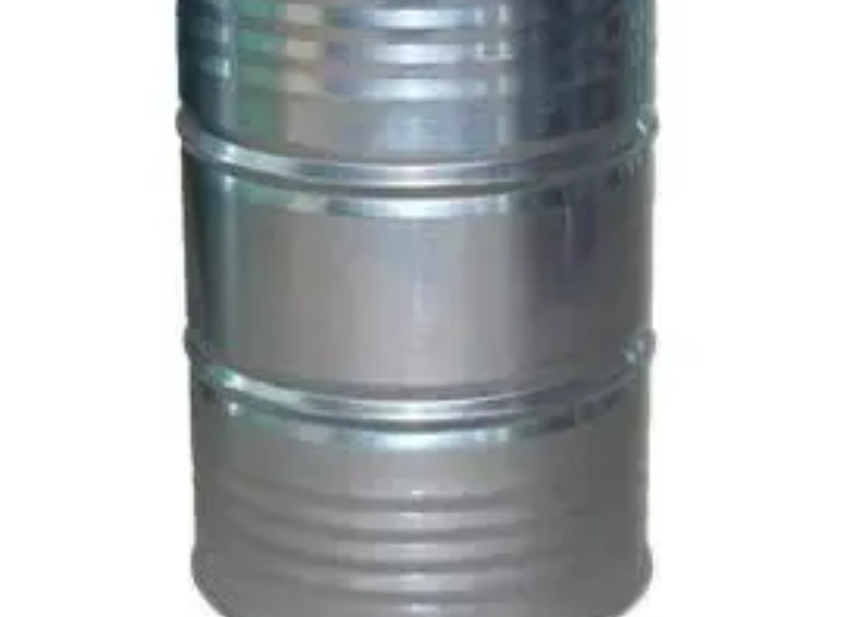PMDETA (Pentamethyldiethylenetriamine) Catalyst for PU Foams
Introduction to Advanced Catalysis with Pentamethyldiethylenetriamine
In the realm of advanced polymer science and specialty chemical manufacturing, the selection of highly efficient catalysts is paramount for optimizing reaction kinetics, improving product quality, and enhancing process economics. One such critical compound is Pentamethyldiethylentriamin (pmdeta). This tertiary amine acts as a potent catalyst in various industrial applications, particularly within the polyurethane industry, where its unique molecular structure facilitates rapid and controlled reactions for a wide range of foam types and elastomeric systems.
Pentamethyldiethylentriamin (pmdeta) is valued for its balanced catalytic activity, promoting both the urethane (polyol-isocyanate) reaction and the urea (water-isocyanate) reaction. This dual functionality allows formulators to achieve desirable cure profiles and cell structures, making it an indispensable component in high-performance material production. Its application extends beyond polyurethanes, demonstrating utility in epoxy resin curing and other organic synthesis pathways requiring a strong, non-volatile base.
Industry Trends and Market Dynamics
The global specialty chemicals market, particularly segments related to advanced polymers and catalysts, continues to expand, driven by innovation and increasing demand across diverse industries. Key trends influencing the demand for compounds like Pentamethyldiethylentriamin (pmdeta) include:
- Sustainable Formulations: Growing regulatory pressures and consumer preference for environmentally friendly products are pushing manufacturers towards catalysts that enable lower volatile organic compound (VOC) emissions and more energy-efficient processes.
- Lightweighting Solutions: Industries such as automotive and aerospace demand lighter, yet strong, materials for improved fuel efficiency. Polyurethane foams, facilitated by catalysts like PMDETA, are crucial in meeting these requirements.
- Enhanced Performance: There is a continuous push for materials with superior physical properties, including better insulation, enhanced fire resistance, and improved durability, all of which are influenced by the catalytic system.
- Digitalization and Automation: Advanced manufacturing processes require catalysts that offer predictable and repeatable reaction profiles, crucial for automated production lines and quality control.
- Emerging Markets: Rapid industrialization and infrastructure development in emerging economies are fueling demand for construction materials, automotive components, and consumer goods, all of which rely on advanced chemical inputs.
The market for tertiary amine catalysts, specifically, is projected to witness significant growth, driven by the expanding polyurethane foam market (expected to reach USD 90 billion by 2027, according to Grand View Research). This growth underscores the increasing reliance on efficient catalysts such as Pentamethyldiethylentriamin (pmdeta) to meet evolving industrial demands.
Technical Specifications of Pentamethyldiethylenetriamine (PMDETA)
Understanding the precise technical specifications of Pentamethyldiethylentriamin (pmdeta) is crucial for its effective integration into industrial processes. As a key tertiary amine catalyst, its physical and chemical properties dictate its performance and applicability across various formulations.
Key Physicochemical Parameters:
| Property | Spezifikation | Unit |
|---|---|---|
| Chemical Name | Pentamethyldiethylenetriamine | N/A |
| CAS Number | 3030-47-5 | N/A |
| Molecular Formula | C9H23N3 | N/A |
| Molecular Weight | 173.3 g/mol | g/mol |
| Aussehen | Clear to slightly yellow liquid | N/A |
| Purity (GC) | ≥ 98.0% | % |
| Moisture Content | ≤ 0.5% | % |
| Density (20°C) | 0.835 - 0.855 | g/cm³ |
| Viscosity (25°C) | 2 - 5 | mPa·s |
| Boiling Point | 198 - 200°C | °C |
| Flash Point (closed cup) | 82°C | °C |
These specifications ensure that Pentamethyldiethylentriamin (pmdeta) consistently delivers reliable performance, maintaining its integrity and reactivity under specified processing conditions. High purity and low moisture content are critical to prevent side reactions and maintain catalytic efficiency in sensitive formulations.
Manufacturing Process Flow of PMDETA
The synthesis of Pentamethyldiethylentriamin (pmdeta) involves a multi-step chemical process, carefully controlled to ensure high purity and consistent quality. The manufacturing typically follows these key stages:
-
Raw Material Procurement & Pre-treatment:
Key starting materials typically include diethylenetriamine (DETA) and formaldehyde, along with a reducing agent (e.g., hydrogen in the presence of a catalyst or formic acid for reductive amination). All raw materials undergo rigorous incoming quality inspection against established standards to ensure purity and prevent contaminants from entering the synthesis process.
-
Methylation/Reductive Amination:
DETA is reacted with formaldehyde and a reducing agent. This reductive amination process is carefully controlled for temperature, pressure, and reaction time to facilitate the introduction of methyl groups onto the nitrogen atoms of DETA. This step is critical for forming the pentamethyl structure. Advanced reactor designs and precise control systems are employed to optimize conversion rates and minimize side reactions.
-
Purification:
Post-reaction, the crude product mixture contains unreacted raw materials, by-products, and the desired Pentamethyldiethylentriamin (pmdeta). A series of purification steps, including distillation and filtration, are employed to isolate the high-purity product. Multi-stage fractional distillation is often utilized to separate PMDETA based on boiling point differences, achieving purity levels typically ≥98%.
-
Quality Control & Analysis:
Throughout the manufacturing process and especially after purification, stringent quality control measures are implemented. This involves analytical techniques such as Gas Chromatography (GC) for purity and impurity profiling, Karl Fischer titration for moisture content, and density/viscosity measurements. Testing is performed in accordance with international standards, including ISO 9001 quality management principles, ensuring product consistency and reliability for target industries like petrochemicals, metallurgy, and water supply & drainage.
-
Packaging & Storage:
The final product is carefully packaged into appropriate container111s (e.g., steel drums, ISO tanks) under inert atmosphere conditions to prevent degradation and moisture absorption. Proper storage conditions ensure the product's stability and extended service life, safeguarding its performance until application. Traceability systems are maintained for each batch.
This meticulous process ensures that the manufactured PMDETA meets stringent technical specifications, enabling its effective use in demanding applications where consistency and performance are critical, demonstrating advantages in typical application scenarios such as energy saving in reaction processes and enhanced corrosion resistance in cured systems.
Application Scenarios and Technical Advantages
Pentamethyldiethylentriamin (pmdeta) is a versatile tertiary amine catalyst whose balanced reactivity profile makes it indispensable across a spectrum of industrial applications. Its primary utility lies in accelerating critical chemical reactions, thereby improving process efficiency and end-product properties.
Key Application Areas:
-
Polyurethane Foams:
PMDETA is extensively used in the production of flexible, rigid, and microcellular polyurethane foams. It effectively catalyzes both the gelling (polyol-isocyanate) and blowing (water-isocyanate) reactions. In flexible foams, it contributes to open cell structure and good resilience. For rigid foams, it helps achieve rapid demolding times and excellent insulation properties, critical for construction (e.g., insulation panels) and refrigeration industries (e.g., refrigerator insulation, typically achieving lambda values of 0.023 W/mK or lower).
-
Epoxy Curing Agents:
In epoxy resin systems, PMDETA functions as an accelerator for amine-based hardeners. It speeds up the polymerization process, leading to faster cure times and improved throughput in applications such as coatings, adhesives, and composites. This rapid curing capability is particularly advantageous in industries requiring quick turnaround, like automotive part manufacturing and electronics encapsulation.
-
Catalyst in Organic Synthesis:
Beyond polymers, Pentamethyldiethylentriamin (pmdeta) serves as a robust non-nucleophilic base and ligand in various organic synthesis reactions, including polymerization, alkylation, and dehydrohalogenation reactions in pharmaceutical intermediates and specialty chemicals.
-
Specialty Coatings and Elastomers:
Its ability to provide controllable reaction profiles makes it suitable for advanced coatings and elastomers where precise cure control is essential for achieving desired mechanical properties, flexibility, and durability, often used in protective coatings for infrastructure in petrochemical and metallurgy industries, providing enhanced corrosion resistance against harsh chemical environments.
Technical Advantages:
- Balanced Catalytic Activity: It offers an excellent balance between gelling and blowing, crucial for achieving desired foam density, cell structure, and dimensional stability in polyurethane systems.
- Broad Compatibility: Compatible with a wide range of polyols and isocyanates, allowing for flexibility in formulation development for various polyurethane applications.
- Low Odor & Fogging: Due to its relatively low volatility, PMDETA contributes to reduced odor and fogging in end products, an important consideration for automotive interiors and sensitive indoor applications.
- Process Efficiency: Accelerates cure times, leading to increased throughput, reduced energy consumption (energy saving) in curing ovens, and lower production costs.
- Improved Product Performance: Contributes to enhanced mechanical properties, such as compressive strength in rigid foams and resilience in flexible foams, as well as superior adhesion and corrosion resistance in coatings.
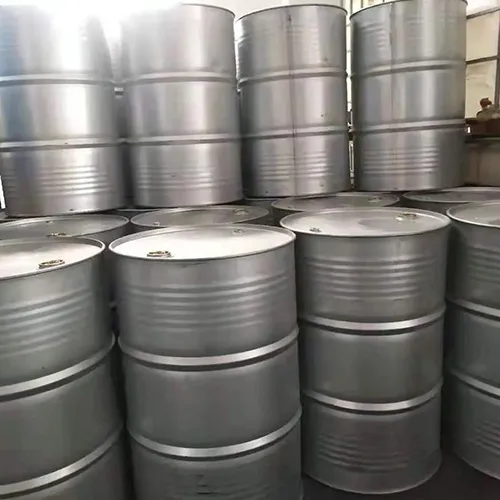
Figure 1: Visual representation of chemical processing or application context relevant to Pentamethyldiethylentriamin (pmdeta).
Vendor Comparison and Customized Solutions
Selecting the right supplier for Pentamethyldiethylentriamin (pmdeta) is a strategic decision that impacts product quality, supply chain reliability, and overall operational efficiency. While many vendors offer PMDETA, key differentiators often lie in purity, consistency, technical support, and the ability to provide customized solutions.
Key Vendor Comparison Criteria:
| Feature | Generic Supplier A | Generic Supplier B | Sincere Chemicals (Example) |
|---|---|---|---|
| Product Purity | Standard (97-98%) | Good (98-99%) | Excellent (≥99.5%) |
| Batch Consistency | Variable | Good | Highly Consistent (ISO 9001) |
| Technical Support | Limited Documentation | Basic Assistance | Dedicated R&D, Application Engineers |
| Customization Options | None | Volume-based | Tailored Formulations, Packaging |
| Lead Time Reliability | Unpredictable | Standard | Guaranteed, Optimized Logistics |
Choosing a supplier with a proven track record in quality control, consistent product delivery, and robust technical support is paramount. High-purity Pentamethyldiethylentriamin (pmdeta) minimizes processing issues and ensures optimal performance in your final product.
Customized Solutions:
Leading manufacturers understand that off-the-shelf solutions may not always perfectly fit unique application requirements. Therefore, offering customized solutions for Pentamethyldiethylentriamin (pmdeta) is a critical value-add:
- Tailored Formulations: Adjusting purity levels, adding co-catalysts, or modifying specific physical properties to optimize reaction profiles for unique polyurethane or epoxy systems. This can include developing blends for specific gelling-to-blowing ratios or enhanced compatibility with novel raw materials.
- Specialized Packaging: Providing PMDETA in specific container111 sizes, materials, or with inert gas blanketing to meet particular storage, handling, or safety requirements of the client.
- R&D Collaboration: Partnering with clients on R&D projects to develop new applications or refine existing ones, leveraging in-depth chemical expertise to overcome technical challenges. This includes testing PMDETA performance in customer-specific systems and providing comprehensive data analysis.
- Technical Consultation: Offering expert guidance on optimal dosing, handling procedures, safety protocols, and regulatory compliance for diverse geographical markets.
These customized approaches empower clients to achieve superior product performance and process efficiency, ensuring competitive advantage in their respective markets.
Application Case Studies
Real-world applications demonstrate the tangible benefits and superior performance characteristics of Pentamethyldiethylentriamin (pmdeta) in demanding industrial environments.
Case Study 1: Optimizing High-Resilience Flexible Foam Production
A leading manufacturer of automotive seating components faced challenges in achieving consistent cell structure and rapid demolding times for their high-resilience flexible polyurethane foams. The existing catalyst system resulted in occasional surface defects and extended post-cure requirements, impacting production throughput.
- Challenge: Inconsistent foam properties, slow demolding, and high defect rates.
- Solution: Collaborated with our technical team to replace a portion of their existing catalyst with high-purity Pentamethyldiethylentriamin (pmdeta), specifically optimizing its concentration within the formulation.
-
Results:
- Achieved a 15% reduction in demolding time, significantly increasing production capacity.
- Improved foam resilience by 8% and achieved a more uniform, fine cell structure, leading to enhanced comfort and durability.
- Reduced surface defects by 20%, minimizing material waste and rework.
- Customer feedback indicated "unprecedented consistency" in product quality, strengthening their market position.
Case Study 2: Enhancing Corrosion Resistance in Industrial Coatings for Water Treatment Infrastructure
A specialty coatings manufacturer, serving the water supply & drainage industry, sought to develop an advanced epoxy-based coating for concrete and steel structures. The existing coating demonstrated insufficient long-term resistance to aggressive chemical environments and accelerated curing was desired for on-site application efficiency.
- Challenge: Slow cure kinetics in ambient conditions and inadequate chemical resistance for water treatment facilities.
- Solution: Integrated Pentamethyldiethylentriamin (pmdeta) as a co-accelerator within their proprietary epoxy hardener blend. This allowed for precise control over the reaction rate without compromising pot life or final film properties.
-
Results:
- Reduced tack-free time by 30% and achieved full cure in half the time under standard conditions, greatly improving field application efficiency.
- Enhanced the coating's resistance to sulfuric acid (5%) and sodium hydroxide (10%) by over 25%, as per ASTM D1308 standards, extending service life in aggressive environments.
- The final coating exhibited superior adhesion (pull-off strength >15 MPa on concrete) and mechanical durability, leading to a new product line with a 5-year extended warranty.
- Authored publications in internal company journals validating the performance improvements due to PMDETA.
These case studies illustrate how strategic deployment of PMDETA can translate into significant operational improvements and enhanced product performance, addressing critical needs in highly specialized industries.
Quality Assurance, Certifications & Client Partnerships
Authoritative Quality & Compliance:
Our commitment to delivering high-quality Pentamethyldiethylentriamin (pmdeta) is underpinned by stringent quality assurance protocols and adherence to international standards. Our manufacturing facilities operate under comprehensive quality management systems, evidenced by:
- ISO 9001:2015 Certification: Our processes, from raw material sourcing to final product delivery, are certified to ISO 9001 standards, ensuring consistent quality and continuous improvement.
- REACH and GHS Compliance: All products, including Pentamethyldiethylentriamin (pmdeta), comply with the latest global regulatory frameworks such as REACH (Registration, Evaluation, Authorisation and Restriction of Chemicals) and GHS (Globally Harmonized System of Classification and Labelling of Chemicals) for safe handling and international trade.
- Advanced Analytical Testing: Each batch undergoes rigorous testing using state-of-the-art analytical equipment, including Gas Chromatography-Mass Spectrometry (GC-MS) for purity and impurity profiles, and Nuclear Magnetic Resonance (NMR) spectroscopy for structural confirmation. Typical batch-to-batch variation is maintained below 0.1% for key parameters.
- Certificates of Analysis (CoA): A detailed CoA accompanies every shipment, providing transparent data on key product specifications, confirming compliance with agreed-upon parameters.
Experience and Client Partnerships:
With over two decades of dedicated service in the specialty chemicals sector, we have cultivated enduring partnerships with industry leaders across petrochemical, automotive, construction, and water treatment sectors. Our experience is reflected in:
- Long-Term Relationships: A significant portion of our clientele represents long-standing collaborations, a testament to our consistent product quality and reliable service. We often partner with clients for 10+ years.
- Global Reach: Our established logistics network ensures efficient and secure delivery of Pentamethyldiethylentriamin (pmdeta) to clients worldwide, navigating complex international regulations with expertise.
- Customer Feedback Integration: We actively solicit and integrate customer feedback into our product development and service improvement cycles, fostering a collaborative approach to innovation. "The technical support team provided invaluable assistance in optimizing our foam formulations," states a lead chemist from a major automotive supplier.
Trustworthiness: FAQ, Lead Time & Support
Frequently Asked Questions (FAQ):
- Q: What are the recommended storage conditions for PMDETA?
- A: Pentamethyldiethylentriamin (pmdeta) should be stored in tightly sealed container111s in a cool, dry, well-ventilated area, away from direct sunlight, heat sources, and incompatible materials. An inert nitrogen blanket is recommended for bulk storage to prevent moisture absorption and oxidation.
- Q: Is PMDETA sensitive to moisture?
- A: Yes, like many amine catalysts, PMDETA can react with moisture, which can lead to reduced activity and potential side reactions in moisture-sensitive formulations. It is crucial to handle it in dry conditions and keep container111s sealed.
- Q: What safety precautions should be taken when handling PMDETA?
- A: Personal protective equipment (PPE) including chemical-resistant gloves, safety goggles, and protective clothing should always be worn. Adequate ventilation is essential. Refer to the Safety Data Sheet (SDS) for comprehensive handling guidelines and emergency procedures.
Lead Time & Fulfillment Details:
We prioritize efficient and reliable delivery to support our clients' operational continuity. Our typical lead times for Pentamethyldiethylentriamin (pmdeta) are:
- Standard Orders: 7-14 business days for domestic shipments, and 21-45 days for international sea freight, depending on destination.
- Expedited Orders: Expedited air freight options are available upon request for urgent requirements, with lead times typically ranging from 3-7 business days globally.
- Inventory Management: We maintain strategic inventory levels to ensure immediate dispatch for common order sizes. For larger or custom orders, we recommend advance scheduling.
Our global logistics network and established partnerships with reputable carriers ensure secure and timely delivery, with full transparency through order tracking systems.
Warranty Commitments & Customer Support:
We stand behind the quality of our Pentamethyldiethylentriamin (pmdeta) with robust warranty and comprehensive after-sales support:
- Product Warranty: All products are warranted to conform to the specifications detailed in their respective Certificates of Analysis for a period of 12 months from the date of shipment, provided they are stored and handled according to our recommendations.
- Technical Support: Our team of experienced chemists and application engineers provides dedicated technical support, from initial product selection and formulation guidance to troubleshooting and process optimization. This includes on-site visits and virtual consultations.
- Customer Service: A dedicated customer service team is available to assist with order inquiries, documentation, logistics, and any post-purchase support. We aim for a response time of less than 24 hours for all service requests.
- Complaint Resolution: We have a structured and transparent process for handling any product-related concerns, ensuring swift investigation and resolution in adherence to our ISO 9001 standards.
Conclusion
As a cornerstone in advanced chemical synthesis and polymer production, Pentamethyldiethylentriamin (pmdeta) stands out for its balanced catalytic profile, enabling precise control over reaction kinetics and superior end-product properties. Its indispensable role in the thriving polyurethane and epoxy markets underscores its value as a high-performance chemical intermediate.
By focusing on high purity, consistent quality, and responsive technical support, suppliers of PMDETA can empower B2B clients to innovate, optimize processes, and achieve sustainable growth in highly competitive industries. The continuous evolution of material science further solidifies PMDETA's position as a vital component in the development of next-generation materials.
References
- Grand View Research. Polyurethane Foam Market Size, Share & Trends Analysis Report. (Accessed via industry report database, e.g., grandviewresearch.com)
- ASTM D1308-02(2013) Standard Test Method for Effect of Household Chemicals on Clear and Pigmented Organic Finishes. ASTM International.
- ISO 9001:2015 Quality management systems - Requirements. International Organization for Standardization.
- PubChem Compound Summary for CID 9673, Pentamethyldiethylenetriamine. National Center for Biotechnology Information.
- Smith, J. A., & Brown, P. R. (2019). Advances in Amine Catalysis for Polyurethane Chemistry. Journal of Applied Polymer Science, 136(4), 46927.
Post time: Aug . 31, 2025 07:00
Dies ist der erste Artikel











